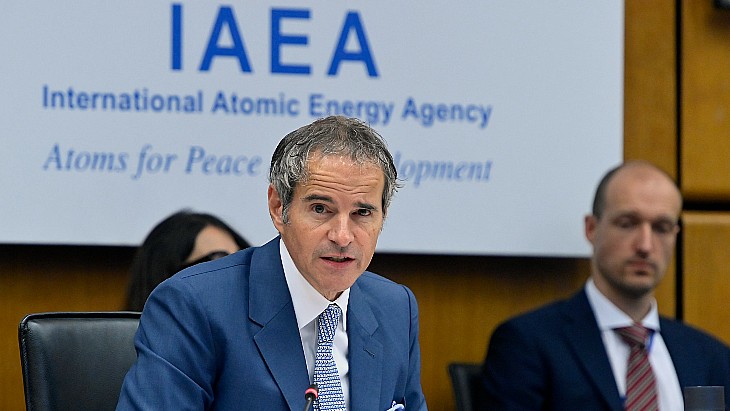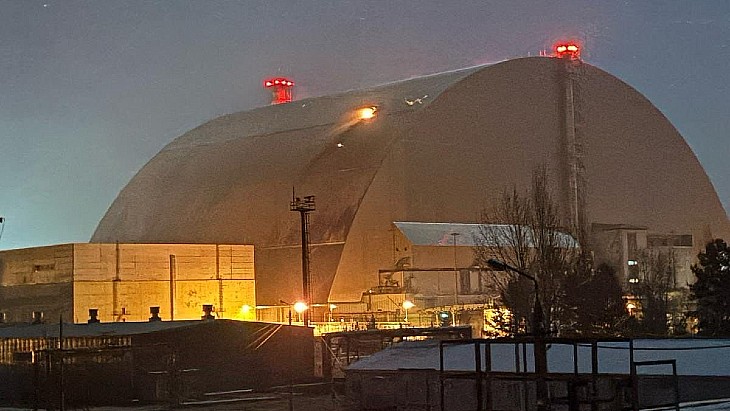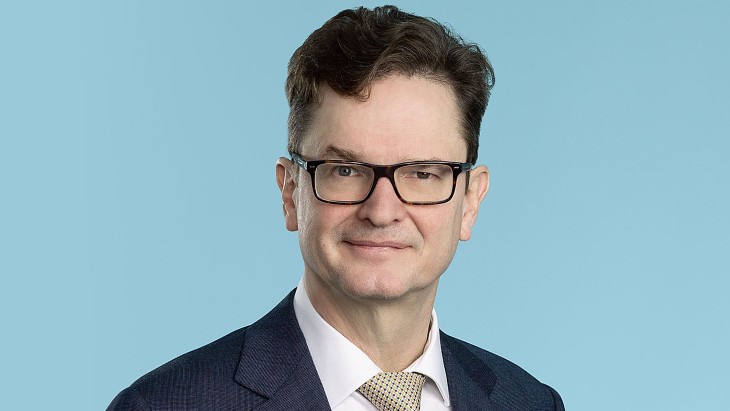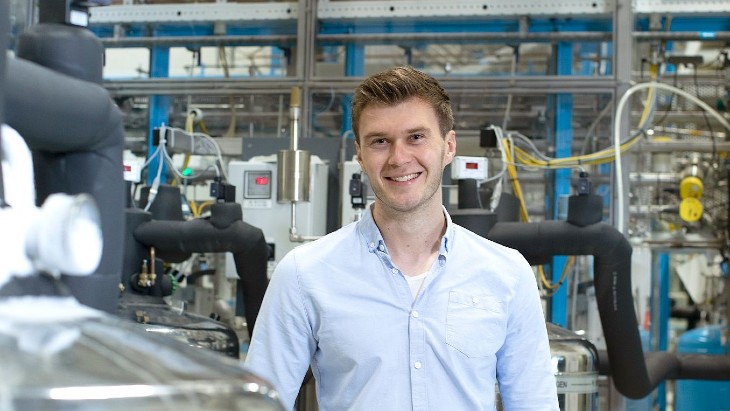IAEA aims to expand team at Zaporizhzhia

In his statement to the IAEA board of governors, Grossi said he had "respectfully and solemnly asked both sides to observe" the five principles - which include agreement not to fire from, or at, the nuclear power plant, or to use it as a base for military personnel or equipment that could be used for an attack.
He said: "They are to no-one’s detriment and to everyone's benefit ... the IAEA Support and Assistance Mission to Zaporizhzhya (ISAMZ), will report to me, in my capacity as director general, on the observance of these principles, and I will report publicly on any violations of them."
At a news conference following his statement to the board, Grossi was asked when the team at the Zaporizhzhia plant was to be expanded. He said the precise timing was not the key thing, as the "wider mission" was now already in place but his aim was to reinforce the team, and enlarge it, perhaps at the next rotation of staff.
Zaporizhzhia is the largest nuclear power plant in Ukraine, and Europe, and is on the frontline of Russian and Ukrainian forces. The wider site has been damaged by shelling at times over the past 16 months of war and it has also had to rely on emergency diesel generators on seven occasions when it has lost its external power supply.
Grossi said: "The site’s fragile power situation continues to be a source of deep concern and - as the newly-established IAEA principles indicate - there is a need for intensified efforts to ensure a more stable and predictable external electricity supply."
The plant currently relies on one 750 kilovolt power line for the external electricity it needs for reactor cooling and other essential nuclear safety and security functions, compared with the four off-site power lines available before the conflict.
The nearby Zaporizhzhia Thermal Power Plant operates the 330 kV open switchyard, through which back-up power has been supplied in the past and Russia told the IAEA in March that Rosatom was working to remove damaged equipment from the open switchyard, "with the aim of restoring three 330 kV lines to the grid system in currently Russian-controlled territory" but, the IAEA said, its experts have still not been granted access to assess the situation and "consultations are ongoing to secure the access".
In his broader update to the IAEA board of governors, Grossi said EUR5 million (USD5.35 million) of nuclear safety and security equipment had been delivered to Ukraine and so far 81 of its experts in 37 missions had been part of one of the rotations at the country's five nuclear sites.
On safeguards to avoid nuclear proliferation, he said that the AUKUS plan - involving the USA and UK - for Australia to get nuclear-powered submarines was "of considerable interest and, for some, concern" and he said the "Secretariat has engaged in consultations with the states concerned to consider the possible implications on the application of agency safeguards. Such arrangements must be in strict conformity with the existing legal framework and, once they are finalised, will be transmitted to the Board of Governors for appropriate action. This process will take some time and the agency will undertake it with its technical, impartial and objective approach."
On Iran, in response to questions from reporters, Grossi rejected the suggestion that safeguards had been "watered down" and insisted that the IAEA was "firm but fair". On North Korea, he said: "The reopening of the nuclear test site is deeply troubling. The conduct of a nuclear test would contravene UN Security Council resolutions and would be a cause for serious concern."
He said that his recent, first official, trip to China had led to the establishment in Beijing of the Nuclear and Radiation Safety Centre. "The centre will be a place for Member States to cooperate and share knowledge on fundamental topics such as ensuring radiation safety, transporting nuclear waste and promoting capacity-building. This visit was of fundamental importance as we enhance our bilateral work in the context of China’s fast-growing civil nuclear programme," he said.
Meanwhile, he said, the Rays of Hope cancer initiative "is gaining momentum" raising approximately EUR37 million in the past year, but there were still funding gaps that need to be filled with 60 member states identifying additional estimated priority needs of EUR36 million.











